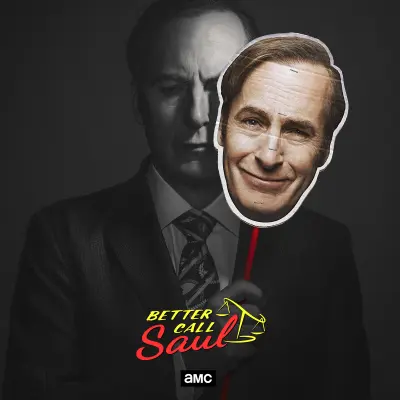As it returns for Season 5, Better Call Saul needs to be less wasteful of its central character
-

"This series has built out over several seasons a dynamic that throbs with painful and vivid life all its own, and seems relentlessly set on merging it with a show that, while accomplished, has had its day exploring dynamics that are frankly less compelling," says Daniel D'Addario says of Season 5 of Better Call Saul. "The show itself is drawn towards the easy way out of a situation that it ought not be trying to escape at all, bringing in familiar if tapped-out characters not to complete its story but to score points it hardly needs. Better Call Saul is, already, one of the most accomplished shows of its moment; that it has tended not to find the awards success of its predecessor series may speak to the ongoing simmer rather than the quick burn of its pleasures. It’s hard not to wish, though, that the series, as it enters its endgame, trusted its viewers to understand that we were watching a Breaking Bad prequel while keeping the delicacy of this series’s mood intact, and trusted us to remember those with whom Saul will soon be associating without resurrecting them to diminished effect. That mood is melancholic, wistful, glimmering with struggle and with love that we know will soon fall away. That there doesn’t seem to be room for the grandiosity of Breaking Bad is precisely the point."
ALSO:
- By avoiding becoming Breaking Bad 2.0, Better Call Saul manages to be brilliant on its own terms: "It’s a series executed with craftsmanship, care, and montage-making that is unparalleled on the small screen," says Miles Surrey. "Yet the reason for the show’s existence also feels like the thing that’s holding it back: When it comes to the nebulous Online Discourse, it doesn’t seem like anything can stop Better Call Saul from living in Breaking Bad’s shadow. It’s sadly fitting that Better Call Saul has garnered 32 Emmy nominations but hasn’t won a single statuette. Preaching about the greatness of Better Call Saul can sometimes feel like screaming into the void, but if there’s ever going to be a moment for the spinoff to capture the zeitgeist like Breaking Bad, the beginning of the fifth and penultimate season seems like the perfect time."
- Season 5 is literally tinged with darkness: Director of photography Marshall Adams’ frames "include more attached shadows and sharper edges, using the sun-baked Albuquerque desert to create added menace through contrast," says Ben Travers. "Especially in the premiere... Saul Goodman’s signature clashing suits, shirts, and ties do little to brighten up the mise en scéne; rather, they serve as a reminder of lost merriment — the man who dressed in the respected attorney’s uniform still believed he could become a respected attorney; the man who dresses as a clown believes he’s going to be laughed at anyway, so why not treat the world like one big joke? But Season 5 isn’t about a singular transformation — no one is happy."
- Better Call Saul has never been better, but Season 5 still feels tangential, juggling placeholder subplots with hysterical continuity
- Here are some burning questions for Season 5
- Creators Vince Gilligan and Peter Gould share their favorite Better Call Saul musical moments
- Rhea Seehorn calls Season 5 the most "tragic" yet
- Giancarlo Esposito: Why Gus Fring's hair looks different in Better Call Saul
- Co-creator Peter Gould views Saul Goodman and Mike Ehrmantraut differently because of Better Call Saul: "On Breaking Bad I thought I knew who Saul Goodman was,” he says. “And now when I see a scene with Bob from Breaking Bad, I don’t just see Saul Goodman, I see Jimmy McGill being Saul Goodman. And I wonder, what’s going on behind that mask? Likewise with Mike, we know so much more about what brought him to where he was on Breaking Bad. But I think, weirdly enough, he seems deeper and more troubled now. So it’s a very interesting circle.”
TOPICS: Better Call Saul, AMC, Breaking Bad, Bob Odenkirk, Giancarlo Esposito, Marshall Adams, Peter Gould, Rhea Seehorn, Vince Gilligan
More Better Call Saul on Primetimer:- Is Aaron Paul alive? Viral claim debunked as Twitter post leaves netizens in disarray
- The bizarre Better Call Saul theory of Kim working for Gus Fring during Breaking Bad may be logically possible
- The Best TV Time Jumps of the Past 20 Years
- Will Finding Your Roots Explain Bob Odenkirk's Lack of an Emmy for Better Call Saul?
